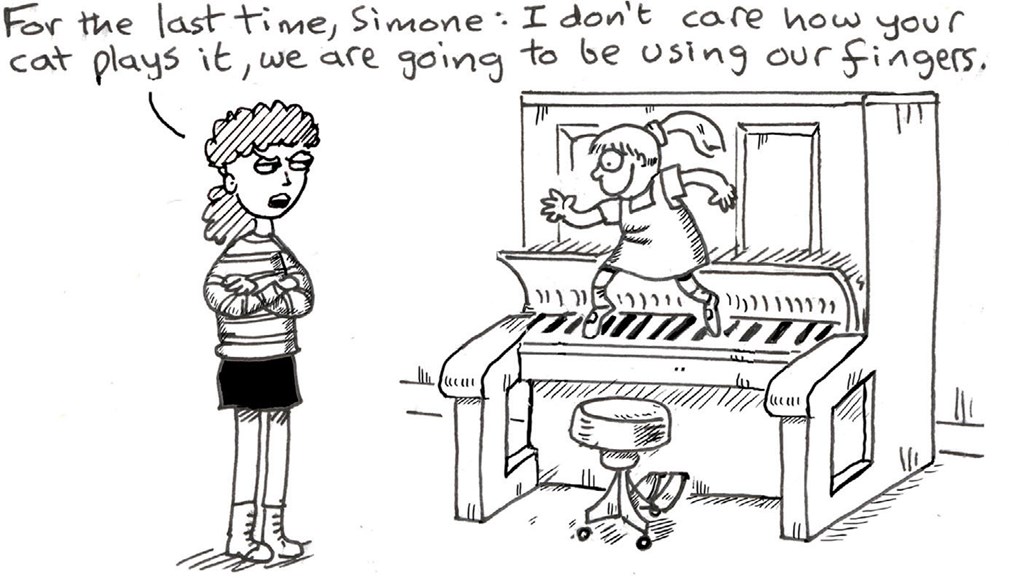Have your say: Letters to the Editor November 2021
Monday, November 1, 2021
Write to the Editor at music.teacher@markallengroup.com and find us on Twitter @MusicTeacherMag.

vladwel
Star letter: Human kind
I am a person who does not usually enter the fray. However, I could not help but notice the number of times in MT issues throughout the past year that we are reading the buzz words and watchwords of ‘equality’, ‘diversity’, ‘inclusion’, ‘decolonising’ (and more recently, ‘tokenistic’). There can be few people living musical lives that decide not to support such important and essential issues, and MT articles clearly signalling the route to proceed and take action are now often appearing.
However, I was left puzzled and baffled as to why language of a certain tone has to be used with reference to composers whose music is still enjoyed and still continues to heal and help some people of today. ‘…all these dead white guys…’ (Dec 2020) and, ‘We are working to diversify the curriculum, to decolonise it – to move it away from the traditional dead German white men and that sense of hierarchy’ (Jan 2021). These were real people who, of course, contributed valuably to music, irrespective of whether their music should or should not be included in a modern music education curriculum, and irrespective of whether the playing of such music is thought to be ‘effectively the product of cultural racism’ (Oct 2021). Carving a path through new territory is all well and good and to be understood with power of visualisation, but let us not forget our shared humanity, and the respect we all deserve.
On a related note, we had a sociologist in the January 2021 issue stating that their job was ‘to make everyone feel uncomfortable’ suggesting there was a ‘pedagogy of correction’ in classical music education. If the said article did leave a sting, the perfect antidote was surely the reporting of Samara Ginsberg's musical journey (Nov 2020), which frankly was a much-needed oasis, not least to learn about her obvious spontaneous musicality but, moreover, her experience of classical music tuition which, after all, was a wonderful model which nowadays is hardly rare. One remembers the kindness of music.
And then there was the writer who stated: ‘If we're not teaching children music they like, then we're not teaching them anything’ (Nov 2020). This is hardly a skill for life when, arguably, adults spend a significant amount of their life carrying out mundane tasks they would otherwise rather not – of and through which many spiritual paths could teach us a lot. Furthermore, cathedral choristers and other functional music bodies in society learn prolifically and usefully – do we assume they like every piece of music that is placed in front of them for choral worship or otherwise?
Do children and adults generally not learn from things they don't like, even if it is only to figure out and say why they don't like it? The journey may be difficult and tedious but is the reward not worth the effort? Children know if they like certain music if they have the chance to hear, experience, express or be inspired by that music – a solid case for inclusiveness, diversity and other musical experiences outside the known orbit. With a somewhat global thinking and experience, then everyone has real freedom and choice to facilitate life-long musical growth and personal development, and hence acquire musical autonomy and independence of thought and feeling with a rich transformative and connectivity with fellow humans. And this is the spiritual kernel – the kindness of music and its healing power and hence the enrichment, enjoyment, and reward of the rediscovery of oneself and finding oneself.
There is hardly a composer past or present who would not wish to express some identity in their music and to communicate it; many compositions and music being greatly influenced and enveloped with indigenous folk music of a composer's country – a huge expression of the heart. Music, like nature, is a tangible spirituality and the only thing that gives a true sense of awe, whatever one's choice of inspiration happens to be, and wherever one's life-long musical pilgrimage happens to take you.
Dr Michael Spacie, Rotherham
THE PERIS by Harry Venning



